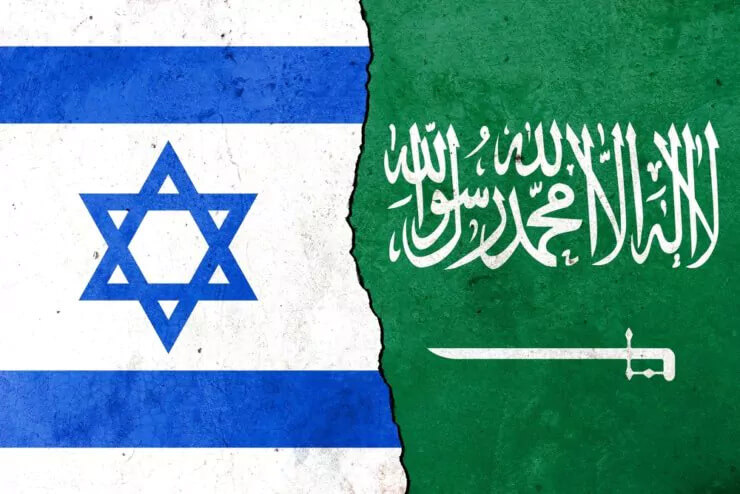An official from the state of Israel's Ministry of Foreign Affairs confirmed Thursday to the Arab media network, Al-Monitor, that construction has begun for a trade corridor project to connect the Jewish State to the Kingdom of Saudi Arabia (KSA).
According to the official, the new corridor project will operate even if diplomatic relations between the two nations are not officially normalized.
In early July, the United States and Israel were working on a new plan to create a continuous trade land bridge connecting Arab states, including Jordan, Israel, Saudi Arabia, and the United Arab Emirates (UAE), starting from the Persian Gulf directly to Israel's seaports, according to media reports.
"I think it is yet another good sign that the warmer regional relations Israel enjoys from the Abraham Accords will continue to flourish, no matter who occupies the White House," said Matthew RJ Brodsky, senior fellow at the Gold Institute for International Strategy.
"Saudi Arabia and Israel share a very similar regional threat matrix when it comes to Iran and the Muslim Brotherhood," Brodsky told The Foreign Desk.
Speaking to Al-Montor, Israeli Foreign Ministry spokesperson Lior Haiat confirmed that the government was working on the project, which begins in the UAE, passes through Riyadh, and ends in the seaports of Israel. Reports also indicate the new trade corridor project will expand to Bahrain and Oman.
"We're working on it. We do not have a deadline for completion," Haiat told Al-Monitor, saying it could be completed by the end of the year. Haiat explained that the new project "can work even without official normalization the same way the flights over Saudi Arabia work."
The planned land bridge route will ensure the transfer of products in trucks between the countries, resulting in trade for the entire region. It will also enable tourist movement.
"This can make the trade between the Arabian Gulf and the Mediterranean Sea faster and cheaper," Haiat told Al-Monitor.
Media reports say the new trade bridge could result in 20% less shipping costs and increase trade between two to three days from several weeks.
Brodsky notes that Mohammed bin Salman Al Saud (MBS) sees Israel as not only part of his regional security architecture but also as a valuable future ally in science, technology, and trade--one that will remain more constant than the US.
"Nevertheless, I would be surprised if Saudi Arabia formalizes a full normalization with Israel before the rest of the Arab world," he said.
Currently, shipping trucks traveling from Israel to the area must cross the Allenby Bridge, which links the West Bank city of Jericho to Jordan but contains lengthy wait times due to bureaucratic procedures such as driver charges and paperwork.
Despite no official normalization between Riyadh and Jerusalem, the Saudi Arabian Kingdom has opened up to the Jewish state, allowing commercial airlines flights from Israel and granting Israel's air force permission to fly through Saudi Arabian airspace.
"This is less a matter of a diplomatic cold shoulder and more of an understanding that Saudi Arabia has considerable diplomatic weight it can use with other regional states before it makes what it considers its greatest public concession toward reconciliation," Brodsky said to The Foreign Desk.
"As far as the feasibility of the trade corridor, I would expect the weakest link to be Jordan," he added.
As the Islamic Republic of Iran continues to foster terrorism via its proxies in the Middle East, Riyadh and more moderate Arab states have opened up to the Jewish state to defend themselves from Tehran and foster new economic relations with Jerusalem.
Related Story: Middle East 2.0 – What’s Possible After the Abraham Accords?









